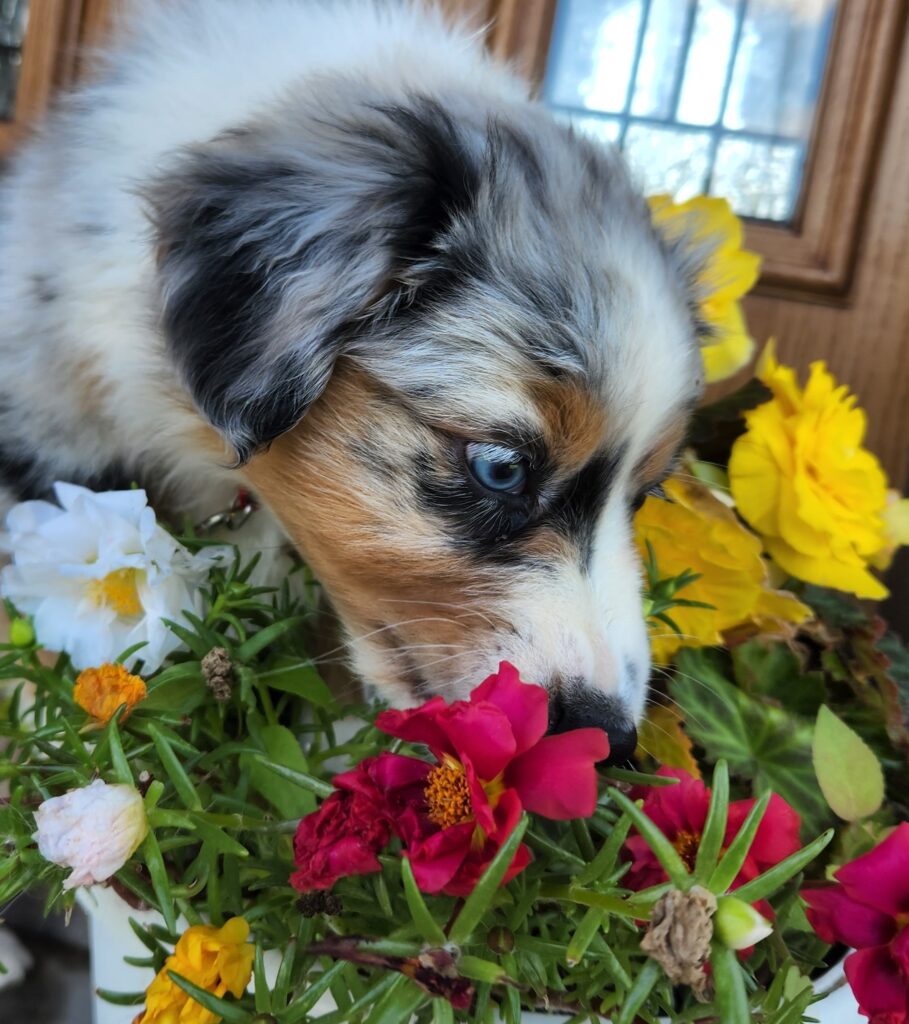Ensuring your puppy’s safety involves being vigilant about toxic plants for dogs. Numerous shrubs, trees, and flowers, whether in your garden or the wild, pose a threat if consumed by your dog. The consequences can range from mild discomfort to severe illness and, in some tragic cases, prove fatal. Within the confines of your home, seemingly harmless household plants such as aloe vera, tomato plants, and, hibiscus harbor toxicity. Even common bulbs like tulips and outdoor favorites like morning glories, specific lilies, and elephant ears found in gardens can be hazardous.
Symptoms of Pet Poisoning
Recognizing the symptoms of pet poisoning is crucial for prompt intervention. The indications can vary widely depending on the type of toxin and the amount ingested. While the signs may differ from case to case, some common manifestations of pet poisoning include:
- Vomiting: Unexplained or persistent vomiting is a red flag for potential poisoning. Keep an eye out for unusual vomiting patterns.
- Diarrhea and Upset Stomach: Changes in bowel movements, especially diarrhea or stomach upset, can be indicative of poisoning. Monitor your pet’s digestive health closely.
- Seizures: Seizures are a severe sign of poisoning and require immediate veterinary attention. If your pet experiences seizures seek professional help urgently.
- Lethargy: A sudden lack of energy or increased lethargy can be a sign that something is amiss. If your pet appears unusually tired or weak, investigate further.
- Loss of Appetite: Refusing to eat or a sudden loss of interest in food may suggest poisoning. Keep track of your pet’s eating habits.
- Drooling: Excessive drooling, especially if it is out of the ordinary, may be a sign of poisoning. Monitor your pet’s salivation.
- Abnormal Behavior: Look out for any unusual behavior such as restlessness, confusion, or disorientation. Changes in behavior can be indicative of poisoning.
- Excessive Thirst or Urination: An abnormal increase in thirst or urination could be a sign of poisoning. Pay attention to changes in your pet’s water consumption.
- Weakness: Noticeable weakness or difficulty in moving may be a symptom of poisoning. If your pet seems unusually weak, seek veterinary assistance promptly.
What Should You Do?
In the event you suspect your dog has ingested a toxic plant or something harmful, swift action is crucial. Reach out to your veterinarian immediately. If it’s after regular hours, contact a Pet Poison Helpline for accurate guidance. To provide essential information, try to identify the plant by taking a photo, noting the time of ingestion, your dog’s weight, and any visible symptoms. However, it’s paramount not to induce vomiting unless directed by a veterinarian. Different plant toxins demand specific treatments, and inducing vomiting can worsen certain situations.
Safe Environment
A proactive approach involves identifying potentially toxic plants for dogs in your vicinity. Utilizing plant identification apps can be beneficial in this process. Either limit your dog’s access to them or consider removing them altogether. When uncertain about the toxicity of a consumed plant, seeking professional advice is a must. Waiting for signs of illness before contacting a veterinarian is a common practice, but the adage “better safe than sorry” holds true in safeguarding your beloved pup’s well-being. Don’t wait—act promptly to ensure your companion’s safety.








